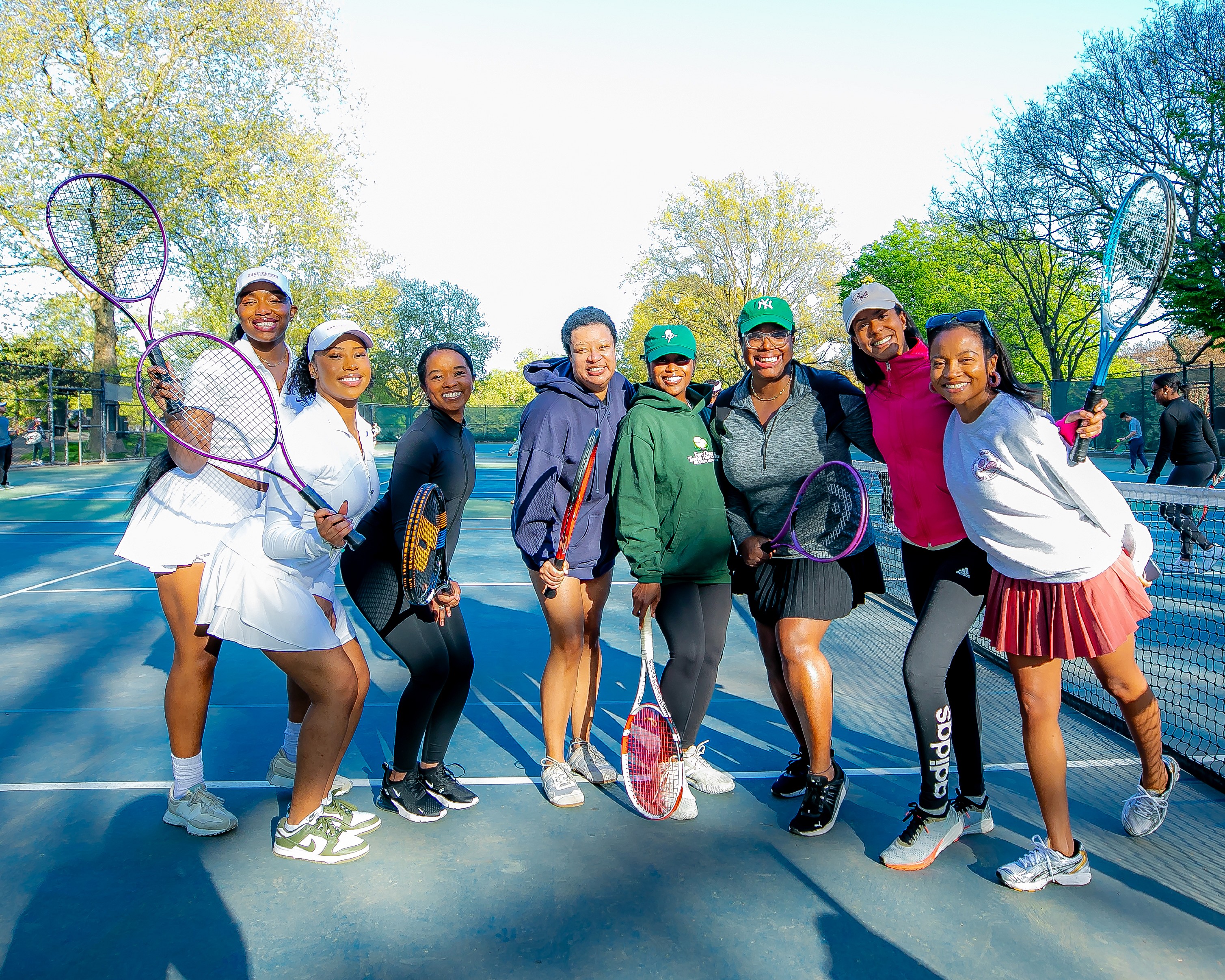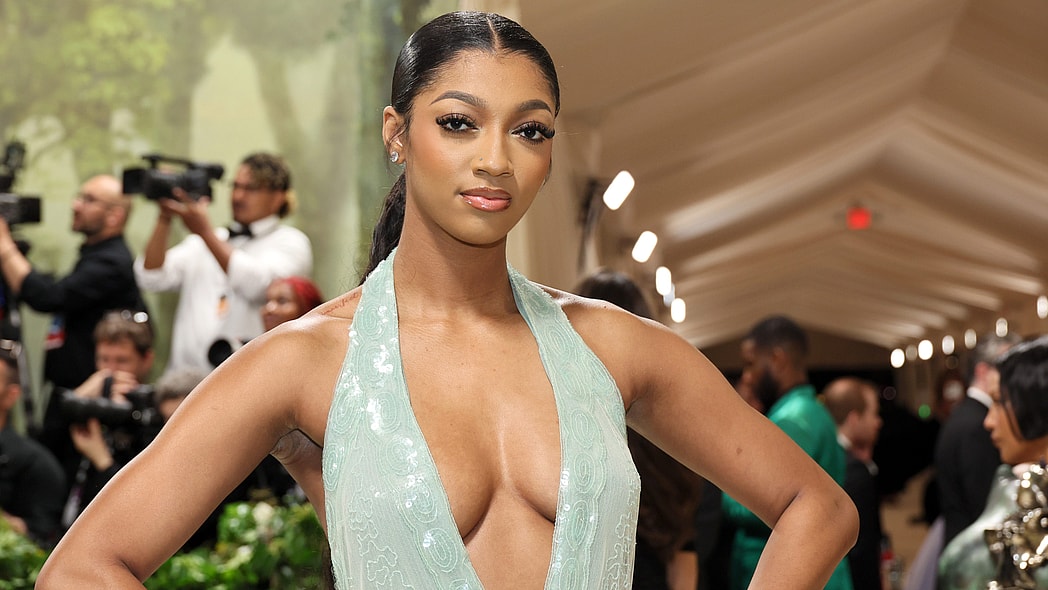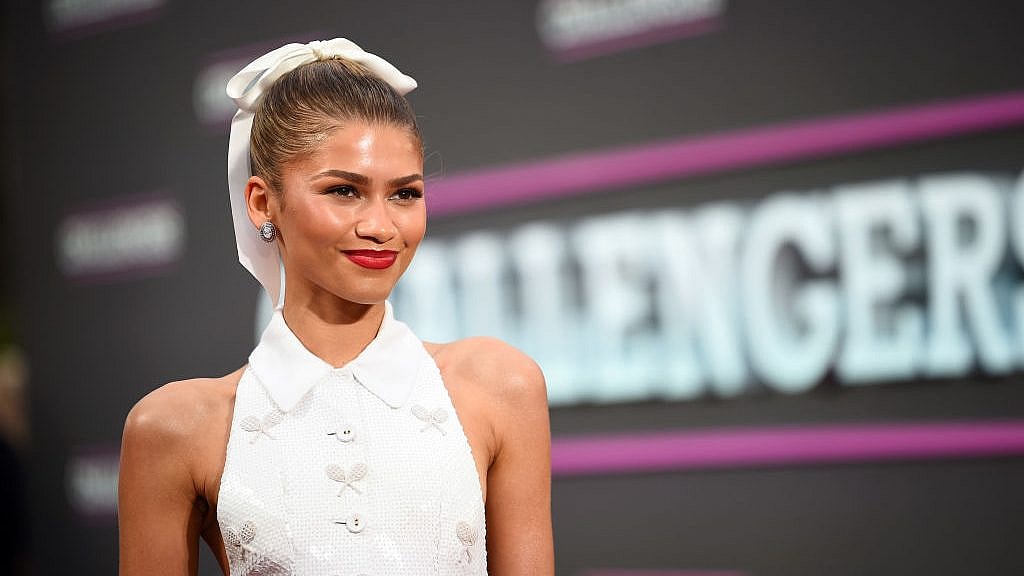Black girls and women interested in tennis are finding a safe space to explore and feel liberated through the sport at Black Girls Tennis Club (BGTC), a nonprofit organization founded in Norfolk, Virginia.

The idea for BGTC, founded by Kimberly Selden and Virginia Thornton, began to take shape after the two bonded over their shared love of the sport during a December 2021 conversation. Thornton’s father taught her how to play tennis during her childhood, while Selden picked up the hobby as an adult. The lack of inclusivity and representation they experienced on the court and within the often exclusive culture of tennis compelled them to come together to make a change.
“We know that tennis is traditionally this elitist, predominantly white sport,” Selden said in conversation with theGrio. ”Anybody that plays tennis probably has stories about what their experience is like on the court so it’s more than access; it’s also what that culture is when you go on the court. Do you see other people that look like you, the tennis clothes? Can you be yourself on the court?”

After becoming an official 501(c)(3) in March 2022, the organization held its first tennis clinic for young girls in April of that year. Two years later, BGTC offers clinics for girls ages 8-18 with up to 14 hours of free tennis instruction; an enrichment curriculum facilitated at weekly clinics; local, national and global tennis exhibitions, events and activations; a “self-love tennis club” and cardio tennis classes for adults; and advocacy work, data, and research.
The impact the organization has had on the Black girls who have participated thus far extends far beyond access to the sport. They are cultivating genuine connections.
“We know that they’re becoming friends even outside of the clinics. They’re really learning about wellness — and, dare I say, self-care and how that all goes together,” Selden explained. “The whole point is less about playing tennis competitively, but having a hobby and being able to play and get to your most authentic selves.
“[Tennis] is such a holistic practice that involves multiple [elements],” she continued. “Relationships, hobbies, how you spend your time — and it all kind of needs to coexist. So we always say it’s more than tennis, but we see growth in the girls, and that’s the most important thing — and it’s healthy growth.”
Recommended Stories
For adult participants, BGTC wants to encourage women to prioritize themselves, including making time for hobbies they enjoy. “I think especially for Black women, our priorities oftentimes have to change, and not by choice,” said Selden. “[We end up thinking] ‘Maybe I could have had a hobby, but my priority was working.’

“And then there’s perfectionism and all the other things that come with being a Black woman — striving for more, chasing her dreams, or trying to provide for her family,” she added. “So for us, again, this started with wanting to serve our age group. We offered it to the youth, and now we’re getting back to what we initially wanted to do.”
Professionally, a handful of Black female athletes and pioneers, such as Althea Gibson, Venus and Serena Williams, Coco Gauff, and Naomi Osaka, have dominated the courts with their talents. BGTC aims to further advance that narrative through increased visibility and accessibility.
”Sometimes people are like, ‘Well, it’s changed. We have Serena.’ But if we look at HBCUs, only half of HBCUs have Black tennis teams. That means there’s a lot of tennis scholarship money on the table for Black people,” Selden noted.
“There’s a lot of areas [for improvement],” she continued. “It’s hard for us to find Black coaches, so there’s pipeline work to do. If [BGTC] can be a bridge to have these conversations and work with organizations, work with country clubs, or with different courts … we are in it from recreational to professional [levels]; [from the] competitive to the advocacy part of it.
“Having access to the sport makes the sport better for everyone, and that’s basic economics and psychology,” Selden added. “We have noticed that [BGTC] was meant to be, and it’s filling a gap that needed to be filled. So we’re grateful for the opportunity to be able to do that work.“
Whether you’re a seasoned tennis player or new to the sport, if Black Girls Tennis Club is active at a court in your city, there is a place for you. For more on the organization and upcoming events, visit the BGTC website.

Jasmine Hardy is an HBCU alumna from the Boogie Down Bronx. She graduated from Virginia State University in 2013 with a Bachelor of Arts in mass communications. She is the senior video producer for theGrio.com and occasionally contributes written pieces for the site. Jasmine enjoys creating content focused on human interest stories, pieces that inspire, and entertainment. She loves to profile people making a positive impact in their communities, whether through nonprofit organizations or through the arts, and believes anyone can make a positive impact in their own way. Jasmine takes pride in using her position at the theGrio to share these stories.









